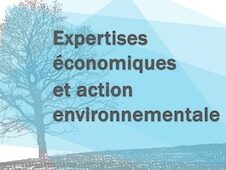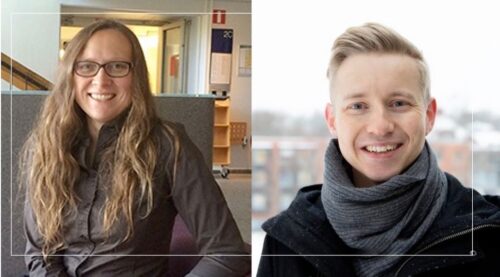
- This event has passed.

The seminar “Economic expertise and environmental actions” welcomes
Magdalena Kuchler
Department of Earth Sciences, Uppsala University, Sweden.
and Bård Lahn
Centre for Technology, Innovation and Culture (TIK), University of Oslo,
and Center for International Climate Research (CICERO), Norway
Underground futures
This session explores the entanglements of forecasting, planning, and economic calculation around underground resources, whether exploited or yet-to-be exploited. This session is organized in collaboration with the Programme Ciblé “Anticip” of the PEPR Sous-sol Bien Commun (Underground Common Good).
Magdalena Kuchler (Department of Earth Sciences, Uppsala University, Sweden)
Speculating on shale: Resource-making and the ‘politics of possibility’ in Poland and the UK
This paper focuses on the speculative character of knowledge and action in relation to subterranean resources, drawing on the curtailed histories of shale gas development in Poland and the UK. It adopts a political-economic orientation towards speculation rather than a narrowly financial one, seeking to understand the ‘politics of possibility’ associated with speculative resources. Specifically, we build on work in political geography to understand speculation as a form of productive ‘resonance’ replicating across epistemic, economic, and political domains. Thinking of speculation as resonance – as synchronous vibration across different areas of social life, stimulated by and intensifying uncertainty – offers a novel way of thinking about the possibilities of subterranean resources for forging political alignments. We show how speculation was integral to demonstrating the resource potential of shale in both Poland and the UK, and consider how this speculative character of shale subsequently infiltrated into economic and policy realms. Resonating across these domains, and amplifying epistemic uncertainties about shale, speculation produced a politics of possibility orientated towards ‘gambling’ on potential outcomes. By taking seriously the political possibilities of the uncertainties attached to subterranean resources, we extend the value of speculation as a concept for analysing the constitutive role of uncertainty in political-economic governance.
Bård Lahn (TIK Centre for Technology, Innovation and Culture, University of d’Oslo)
Quantifying the oil economy: Unknown geological resources as future revenue
Fossil fuels stored in geological reservoirs are usually not directly observable, and their extent or even existence is often fundamentally uncertain. Yet extraction-based economies rely on quantifying their value and bring them into their accounting practices. This talk will focus on how the Norwegian government brought the country’s oil resources into its machineries of economic planning. Geological surveys, market forecasts and economic technologies such as discounting all played important roles in making ‘the oil asset’ a known and governable entity – even if the oil itself was yet to be discovered. This in turn affected how the oil resources were managed and ultimately extracted. On this basis, the talk will explore how geological resource-making is entangled with practices of economic planning and valuation.

Magdalena Kuchler is a Senior Lecturer in Global Energy Systems and Associate Professor (Docent) in the Research Programme Natural Resources and Sustainable Development (NRHU) at the Department of Earth Sciences at Uppsala University. Her research , at the intersection of environmental and political science, aims to unravel and scrutinize emerging energy futures, imaginaries and narratives underpinning global and regional low-carbon transitions. Her main research interests include energy security, transition and governance; fossil fuel discourses and materialities; unconventional energy sources; critical materials, sustainable resources governance and resource-making; as well as climate-energy nexus and climate change governance.
Bård Lahn is a postoctoral research fellow at the University of Oslo’s Centre for Technology, Innovation and Culture (TIK), and an affiliated researcher at CICERO Centre for International Climate Research. With a background in Science and Technology Studies (STS), he researches climate politics in Norway and at the international level. His main research interests include the role of scientific expertise in climate policymaking, the relationship between fossil fuel production and climate policy, and the North/South dimensions of climate justice. He has also worked with a number of NGOs and activist networks on climate justice, fossil fuel extraction and other environmental issues.
Date: Friday, March 1, 2024, 11am-1pm
Venue: Mines Paris-PSL, 60 boulevard Saint Michel, 75006 Paris. Room L101
The seminar is held in English
The session will also be streamed by videoconference. The link will be sent upon registration just before the seminar.
The seminar is open to all. Please register here to participate in this session.
Find out more about the program







